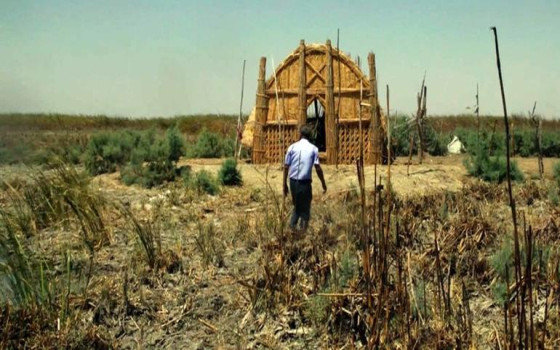
Climate crisis: drought replaces water in the marshes of Iraq..The government: water has reached its lowest level

- Europe and Arabs
- Tuesday , 15 August 2023 14:8 PM GMT
New York-Baghdad: Europe and the Arabs
The waterways of the Mesopotamian marshes near Chibayish in southern Iraq are covered with lush green grass. But as soon as you take one step on land, you see an astonishing change.
The marshes are no longer marshes, but barren land scarred by years of drought. The heat is sweltering, with midday temperatures reaching 50°C. According to the official website of the United Nations on the Internet today, Tuesday
The Mesopotamian Marshes and the culture of the Marsh Arabs - or as they call them Ma'dan - occupy a privileged position in the UNESCO World Heritage List.
The Ma'dan have been practicing hunting and fishing in this marsh area for 5,000 years, and built houses of woven reeds on floating islands where the Tigris and Euphrates rivers meet before flowing into the Gulf.
Jassim Al-Asadi is the managing director of an environmental group called Nature Iraq.
Since 2006, Al-Asadi, a water engineer, has been working hard to raise awareness of the threats facing Iraq's southern marshes. and say:
"It was very nice here at the end of winter. Buffalo herders, fishermen and waterers were very active in this area. Now you can see that it is completely dry without water. There are no buffalo herders, no hunters, and the reeds have dried up."
The water level in Iraq is at its lowest level
On August 8, Minister of Water Resources Awn Dhiab Abdullah announced that water levels in Iraq had reached an all-time low.
The issue of water has broader regional ramifications, and all countries must work to manage this precious resource as a public good. Fed by flood waters from the Tigris and Euphrates rivers, Iraq's southern marshes have shrunk from 20,000 square kilometers in the early 1990s to 4,000 square kilometers, according to the latest estimates.
Iraq ranks fifth among the most climate-affected countries in the world, according to the United Nations Environment Program. Iraqis are particularly vulnerable to the negative human rights impacts of serious environmental degradation caused by conflict, the oil industry, and mismanagement and lack of regulation leading to high levels of pollution.
"There has been a change in the environment of this region. Water has been replaced by complete drought, and desert trees have grown instead of reeds," al-Asadi said.
Extreme weather events, including prolonged droughts, have become the rule rather than the exception over the past four decades.
Drought afflicts the inhabitants of the marshes
The marshes continued to raise buffaloes, traditionally, to produce milk. But as the marshes dry up, the water becomes too salty for the animals to drink.
Jassim Al-Asadi met a young farmer, explaining how this young man coped with the repercussions of the drought: "The water is polluted and the salinity of the water is very high. For this reason, he goes to fetch water near the Euphrates to water the buffaloes."
In the town of Chibayish in Dhi Qar Governorate, community leaders meet at Madif - a traditional house made of reeds harvested from the marshes, a large ceremonial house paid for and run by a local sheikh.
According to the International Organization for Migration, drought, land degradation and increased salinity in rivers and tributaries are putting increasing pressure on the agriculture, livestock and fishing industries, as many families are unable to ensure adequate and sustainable livelihoods in rural areas.
By 15 June 2023, some 13,920 families have been displaced from their homes due to drought conditions in 10 governorates. Other districts with significant climate-induced displacement include Shatrah District in Dhi Qar Governorate (2,345 families).
Working in the marshes is the profession of our fathers and grandfathers
The Sheikh of Lebanon Abd al-Razzaq al-Khayoun al-Sadi al-Asadi, the sheikh of the Bani Asad tribe in Dhi Qar Governorate, does not question the impact of the great changes on the survival of their traditional culture, as he said:
“The lack of water has a direct impact on the lives of people in the countryside as their livelihood depends primarily on water. We are not merchants or employees and we have no other occupations to provide us with income. Working in the marshes is the profession of our fathers and grandfathers.”
Recently, UN High Commissioner for Human Rights Volker Türk completed a four-day visit to Iraq. During which he visited the Shatt al-Arab district, southeast of Basra, where he met former residents who had been displaced from their lands. They told the High Commissioner how 30 years ago they managed to live on their land, harvest dates and make a living. Frequent drought cycles and climate change have dried up watercourses. And the date groves turned into a desert.
Speaking at a press conference in Baghdad at the end of his visit, Türk stressed the seriousness of the situation for everyone and added:
"This is a climate emergency. And it's time for it to be treated as an emergency. Not just for Iraq, but for the whole world. What's happening here is a window into a future that's coming now for other parts of the world - if we continue to fail in our responsibility to take preventive and mitigating action." against climate change".


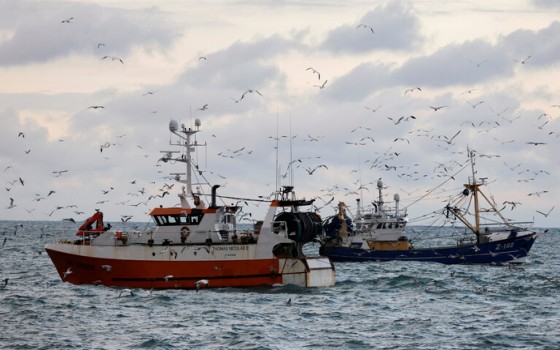

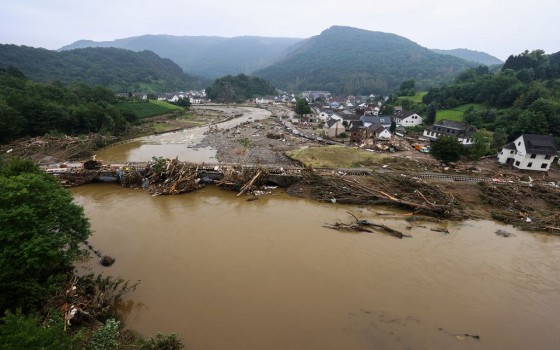
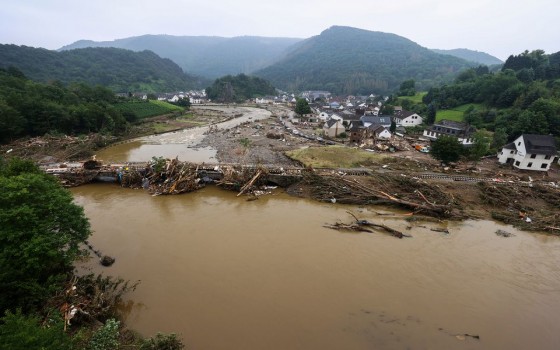


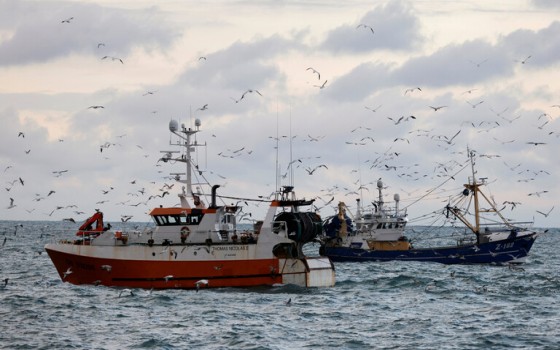



No Comments Found